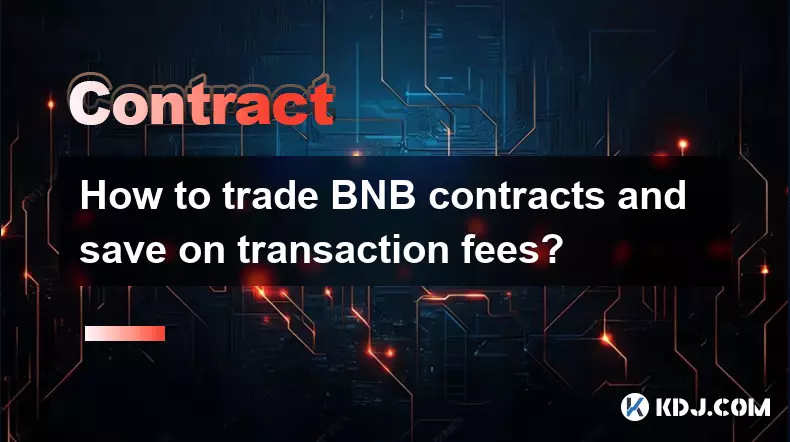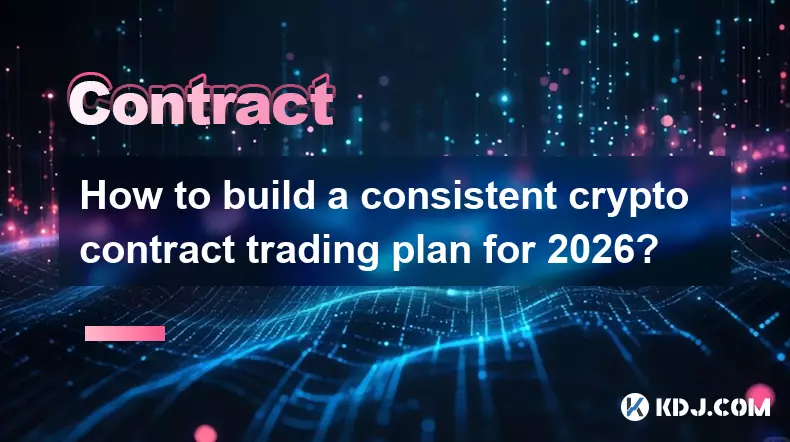-
 bitcoin
bitcoin $87959.907984 USD
1.34% -
 ethereum
ethereum $2920.497338 USD
3.04% -
 tether
tether $0.999775 USD
0.00% -
 xrp
xrp $2.237324 USD
8.12% -
 bnb
bnb $860.243768 USD
0.90% -
 solana
solana $138.089498 USD
5.43% -
 usd-coin
usd-coin $0.999807 USD
0.01% -
 tron
tron $0.272801 USD
-1.53% -
 dogecoin
dogecoin $0.150904 USD
2.96% -
 cardano
cardano $0.421635 USD
1.97% -
 hyperliquid
hyperliquid $32.152445 USD
2.23% -
 bitcoin-cash
bitcoin-cash $533.301069 USD
-1.94% -
 chainlink
chainlink $12.953417 USD
2.68% -
 unus-sed-leo
unus-sed-leo $9.535951 USD
0.73% -
 zcash
zcash $521.483386 USD
-2.87%
Principles of CoinW leverage trading
CoinW's leverage trading platform empowers traders to amplify their potential returns, but requires a thorough understanding of leverage ratios, trading opportunities, risk management, and position monitoring.
Nov 15, 2024 at 04:11 am

CoinW, a leading cryptocurrency exchange, offers a comprehensive leverage trading platform that empowers traders to multiply their potential returns. Understanding the principles behind leverage trading on CoinW is crucial for successful participation. This comprehensive guide will delve into the fundamental concepts, strategies, and risk management techniques involved in CoinW leverage trading.
1. The Basics of Leverage TradingLeverage trading, also known as margin trading, involves borrowing funds from a broker or exchange to magnify the size of your trading positions. This allows traders to control a larger amount of capital than they initially possess, potentially amplifying their profits.
On CoinW, traders can access leverage ratios of up to 100x, enabling them to control up to 100 times their initial investment. However, it's important to note that leverage also amplifies potential losses.
2. Choosing the Right Leverage RatioSelecting the appropriate leverage ratio is a critical decision that can significantly impact your trading outcomes. The ideal ratio depends on your risk tolerance, trading strategy, and market conditions.
Conservative traders may opt for lower leverage ratios (e.g., 2x-5x) to mitigate potential losses. Aggressive traders, who are comfortable with higher risk, may consider higher leverage ratios (e.g., 10x-25x) to maximize profit potential.
3. Identifying Trading OpportunitiesEffective leverage trading requires a discerning eye for identifying high-probability trading opportunities. This involves thorough technical and fundamental analysis to predict market movements.
Technical analysis involves studying historical price data, chart patterns, and indicators to forecast future price direction. Fundamental analysis considers factors such as economic news, industry trends, and company financials to assess the underlying value of an asset.
4. Executing Leverage TradesOnce a trading opportunity is identified, traders can execute leverage trades on CoinW's platform. The process involves the following steps:
- Select the Trading Pair: Choose the cryptocurrency pair you wish to trade (e.g., BTC/USDT).
- Set the Leverage Ratio: Determine the appropriate leverage ratio based on your risk tolerance and strategy.
- Enter the Order Type: Select the order type that aligns with your trading goals (e.g., limit order, market order).
- Adjust Position Size: Calculate the position size based on your initial investment, leverage ratio, and desired risk exposure.
- Place the Trade: Submit the order to the market to initiate the leveraged trade.
Once a leverage trade is executed, it's crucial to monitor and manage the position actively to maximize its potential. This involves:
- Tracking Price Movements: Closely follow the price movement of the underlying asset to assess profit or loss.
- Managing Leverage Risk: Adjust the leverage ratio or position size if market conditions change significantly.
- Setting Stop-Loss Orders: Place stop-loss orders below entry prices to automatically close trades and limit potential losses.
- Taking Profits: Secure profits by manually closing trades or using take-profit orders.
Disclaimer:info@kdj.com
The information provided is not trading advice. kdj.com does not assume any responsibility for any investments made based on the information provided in this article. Cryptocurrencies are highly volatile and it is highly recommended that you invest with caution after thorough research!
If you believe that the content used on this website infringes your copyright, please contact us immediately (info@kdj.com) and we will delete it promptly.
- WisdomTree Eyes Crypto Profitability as Traditional Finance Embraces On-Chain Innovation
- 2026-02-04 10:20:01
- Big Apple Bit: Bitcoin's Rebound Hides a Deeper Dive, Say Wave 3 Watchers
- 2026-02-04 07:00:03
- DeFi Vaults Poised for 2026 Boom: Infrastructure Matures, Yield Optimization and Liquidity Preferences Shape the Future
- 2026-02-04 06:50:01
- Royal Canadian Mint Unveils 'Gold Dime' with Astounding High Value, Captivating Collectors
- 2026-02-04 06:55:01
- Datavault AI Dives into Digital Collectibles with Dream Bowl Meme Coin II, Navigating the Wild West of Web3
- 2026-02-04 06:30:02
- New VistaShares ETF Merges Bitcoin and Treasuries for Enhanced Income
- 2026-02-04 06:55:01
Related knowledge

How to close a crypto contract position manually or automatically?
Feb 01,2026 at 11:19pm
Manual Position Closure Process1. Log into the trading platform where the contract is active and navigate to the 'Positions' or 'Open Orders' tab. 2. ...

How to understand the impact of Bitcoin ETFs on crypto contracts?
Feb 01,2026 at 04:19pm
Bitcoin ETFs and Market Liquidity1. Bitcoin ETFs introduce institutional capital directly into the spot market, increasing order book depth and reduci...

How to trade DeFi contracts during the current liquidity surge?
Feb 01,2026 at 07:00am
Understanding Liquidity Dynamics in DeFi Protocols1. Liquidity surges in DeFi are often triggered by coordinated capital inflows from yield farming in...

How to use social trading to copy crypto contract experts?
Feb 02,2026 at 07:40am
Understanding Social Trading Platforms1. Social trading platforms integrate real-time market data with user interaction features, enabling traders to ...

How to trade BNB contracts and save on transaction fees?
Feb 03,2026 at 12:39am
Understanding BNB Contract Trading Mechanics1. BNB contracts are derivative instruments traded on Binance Futures, allowing users to gain leveraged ex...

How to build a consistent crypto contract trading plan for 2026?
Feb 02,2026 at 10:59pm
Defining Contract Specifications1. Selecting the underlying asset requires evaluating liquidity depth, historical volatility, and exchange support acr...

How to close a crypto contract position manually or automatically?
Feb 01,2026 at 11:19pm
Manual Position Closure Process1. Log into the trading platform where the contract is active and navigate to the 'Positions' or 'Open Orders' tab. 2. ...

How to understand the impact of Bitcoin ETFs on crypto contracts?
Feb 01,2026 at 04:19pm
Bitcoin ETFs and Market Liquidity1. Bitcoin ETFs introduce institutional capital directly into the spot market, increasing order book depth and reduci...

How to trade DeFi contracts during the current liquidity surge?
Feb 01,2026 at 07:00am
Understanding Liquidity Dynamics in DeFi Protocols1. Liquidity surges in DeFi are often triggered by coordinated capital inflows from yield farming in...

How to use social trading to copy crypto contract experts?
Feb 02,2026 at 07:40am
Understanding Social Trading Platforms1. Social trading platforms integrate real-time market data with user interaction features, enabling traders to ...

How to trade BNB contracts and save on transaction fees?
Feb 03,2026 at 12:39am
Understanding BNB Contract Trading Mechanics1. BNB contracts are derivative instruments traded on Binance Futures, allowing users to gain leveraged ex...

How to build a consistent crypto contract trading plan for 2026?
Feb 02,2026 at 10:59pm
Defining Contract Specifications1. Selecting the underlying asset requires evaluating liquidity depth, historical volatility, and exchange support acr...
See all articles





















![[FULL STORY] My grandfather left me his [FULL STORY] My grandfather left me his](/uploads/2026/02/03/cryptocurrencies-news/videos/origin_6981f669e270a_image_500_375.webp)




















































